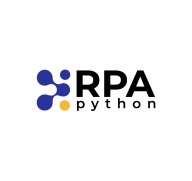


Microsoft Power Automate and Python RPA are competing automation solutions. Microsoft Power Automate stands out for its ease of integration within the Microsoft ecosystem, while Python RPA excels in flexibility and customization for advanced automation tasks.
Features: Microsoft Power Automate offers seamless native integration with Microsoft services like SharePoint and Dynamics 365, simplifying workflow automation. It provides user-friendly experiences and strong connectivity within the Microsoft ecosystem. Python RPA provides extensive customization options, allowing developers to create complex workflows suited to diverse scenarios. This flexibility makes Python RPA ideal for personalized automation scripting.
Ease of Deployment and Customer Service: Microsoft Power Automate has a structured deployment process, complemented by Microsoft's robust support channels, beneficial for organizations seeking quick setup and reliable service. Python RPA's flexible deployment requires technical expertise, making it suitable for teams comfortable with complex setups. Both offer dedicated support, but Microsoft Power Automate users have access to more comprehensive resources.
Pricing and ROI: Microsoft Power Automate offers competitive pricing, especially within Microsoft Suite bundles, potentially enhancing ROI for existing subscribers. Its pricing starts at $15 per user/month for the subscription version. Python RPA, with an open-source model, reduces initial costs but demands investment in developer time and resources. Python RPA's ROI is significant for extensively customized solutions, while Microsoft Power Automate offers faster ROI for standardized workflows.
Fortra's Automate has effectively replaced the workload of an entire employee, saving us significant time and money.
It has helped us save time, and we've saved thousands of hours through automation.
They don't always understand the processes I'm trying to implement.
They are very responsive and have been able to resolve any issues I have encountered.
I would rate the technical support as a nine out of ten because it is quite fast and courteous.
Having experience with coding is essential to fully utilize Power Automate.
It is easy to increase one bot or one studio without needing to buy another orchestrator, which can be quite expensive.
The stability of Fortra's Automate is excellent.
It has very robust features, and it is not prone to instability.
Integration with Amazon S3 is somewhat lacking.
I would prefer not having to log in to update a ticket; being able to respond via email would be beneficial.
I find that most important features are strong, however, there is a lack of good development for artificial intelligence, such as machine learning.
Competitors are often more expensive than Automate.
It offered what we wanted at a good, competitive price.
It does a lot but also costs a lot.
Automate's non-reliance on additional orchestrators makes it quite cost-effective.
The most valuable features of Fortra's Automate include its FTP functionality and file manipulation capabilities.
I really like the API functionality; it's a slick aspect of the solution when I'm using it.
We have saved thousands of hours by automating tasks that would have been labor-intensive and error-prone if done manually.



Automate offers a user-friendly solution with a drag-and-drop interface for efficient task automation and integration with major platforms like SAP and Azure, making it ideal for quick deployment with minimal coding and training.
Automate provides powerful features for businesses seeking efficient automation, offering compatibility with databases, email integration, and cloud platforms. Its simple interface supports both beginners and experienced users, simplifying tasks like invoice processing, HR automation, and data transformation. Cost-effective pricing and flexible licensing enhance its appeal while integration capabilities and scheduling tools ensure smooth workflow automation.
What are Automate's Key Features?In industries such as healthcare, banking, and logistics, Automate is used for tasks like invoice payment automation, data transformation, and task automation. This leads to streamlined processes and reduced manual workload, illustrating its value in enhancing operational efficiency through diversified workflows.
Microsoft Power Automate is a powerful tool that streamlines and automates tasks within an organization.
It is used for workflow automation, data integration, and creating automated notifications and approvals.
Power Automate connects different applications and services, such as SharePoint, Excel, and Outlook, to automate data transfer and synchronization.
Users employ Python RPA for automating repetitive tasks and streamlining workflows, reducing manual errors, and enhancing efficiency in processing data, web scraping, and application integration.
Python RPA is valued for its ability to handle complex automation processes, its flexibility, and its compatibility with different systems. It is particularly beneficial for large-scale data handling and business process automation. Users find the extensive library and strong community support helpful for swift issue resolution and knowledge sharing. Its intuitive design and clear documentation simplify the learning curve and implementation. However, documentation can lack depth, making troubleshooting challenging. The setup process can be cumbersome, requiring more intuitive guidance. Execution speed can be slow, causing inefficiencies in workflows, and there is a need for better support and resources for developers. Some users report difficulties with integration into existing systems, suggesting enhanced compatibility and flexibility are needed.
What are the key features?In industries where large-scale data processing is essential, such as finance or healthcare, Python RPA helps automate data entry, validation, and reporting, significantly reducing manual labor and improving accuracy. In retail, it integrates with e-commerce platforms to automate order processing and inventory management, ensuring smooth operations. Other sectors, like logistics, benefit from Python RPA by streamlining dispatch and tracking processes, enhancing operational efficiency and customer satisfaction.
We monitor all Robotic Process Automation (RPA) reviews to prevent fraudulent reviews and keep review quality high. We do not post reviews by company employees or direct competitors. We validate each review for authenticity via cross-reference with LinkedIn, and personal follow-up with the reviewer when necessary.